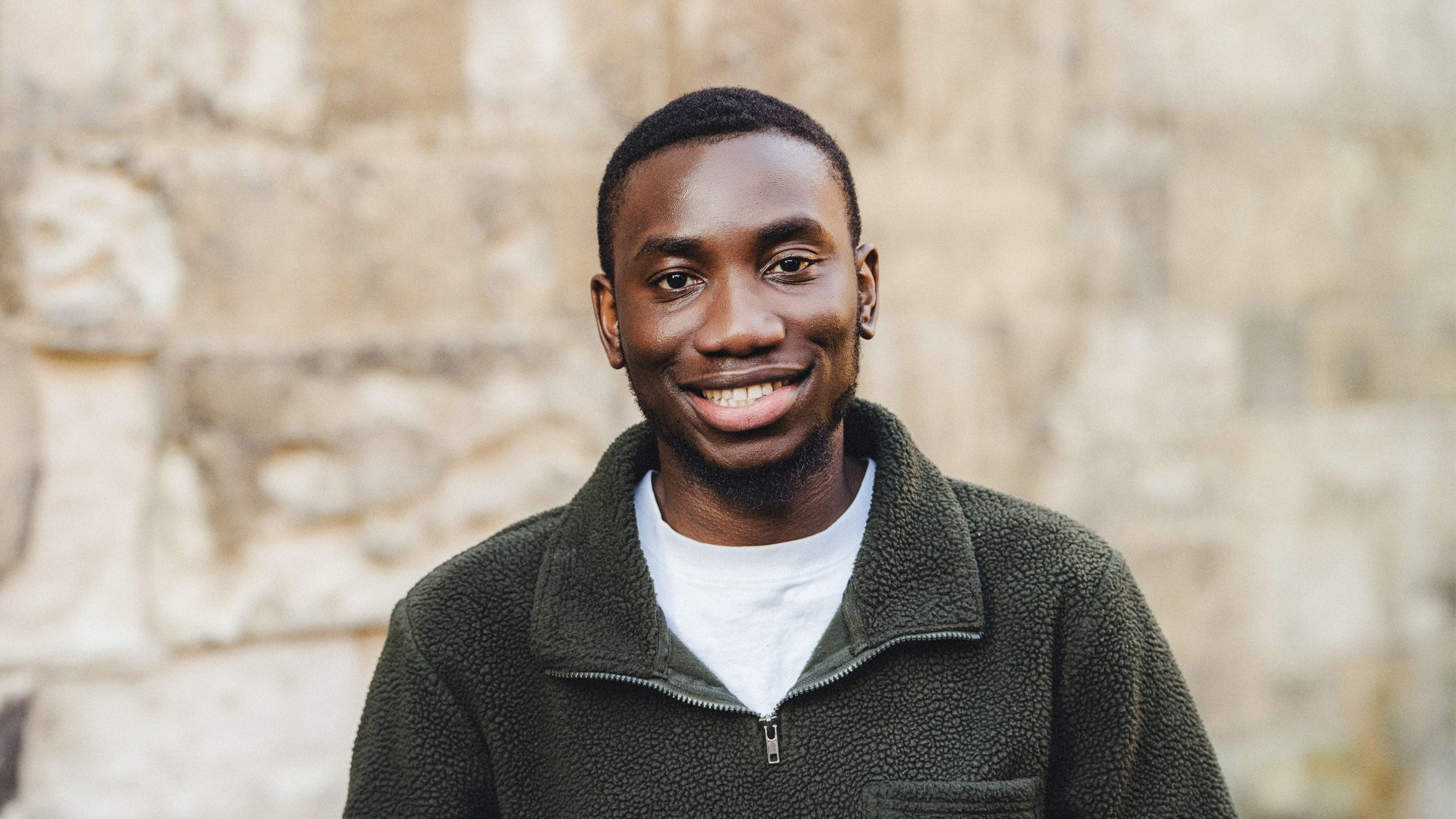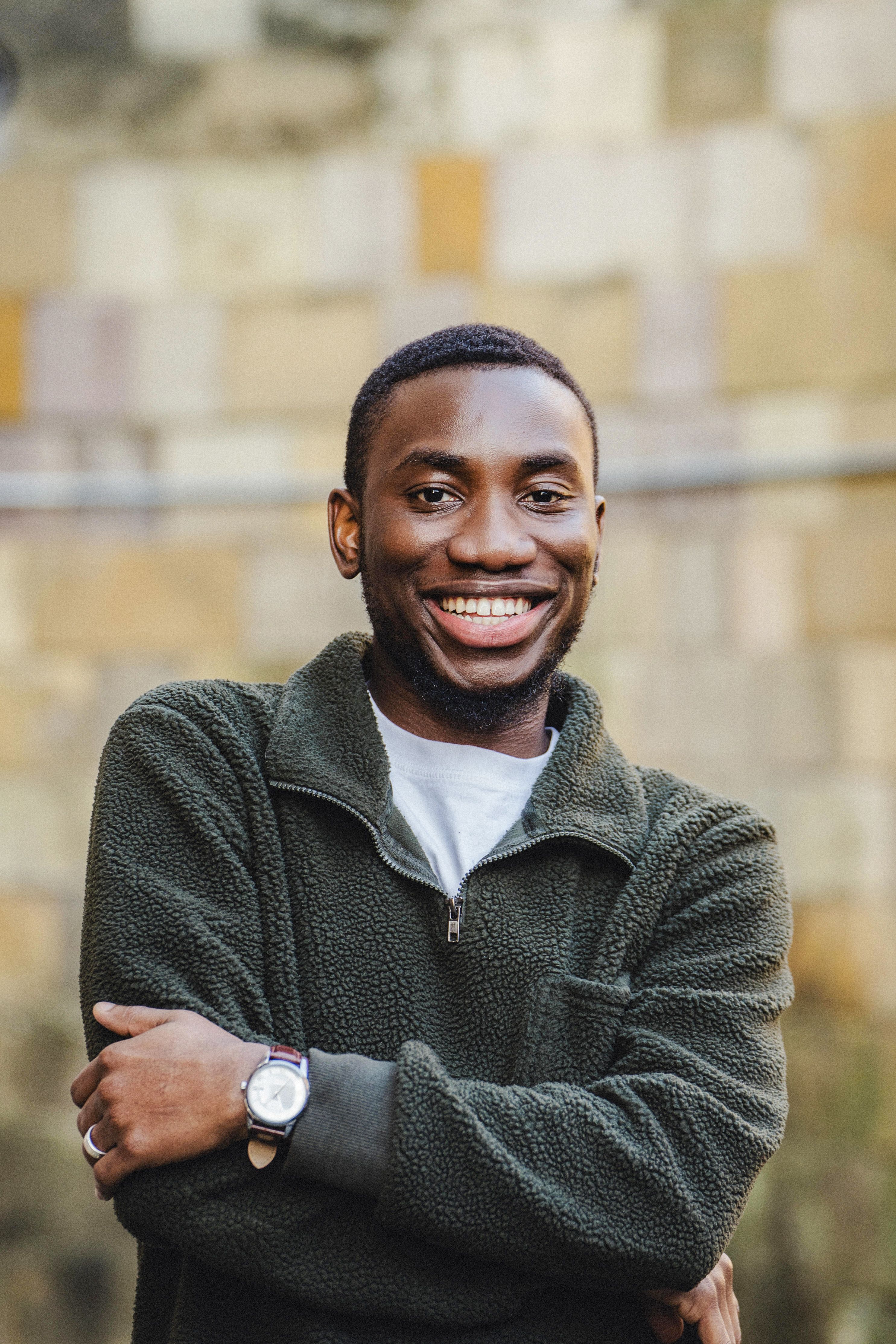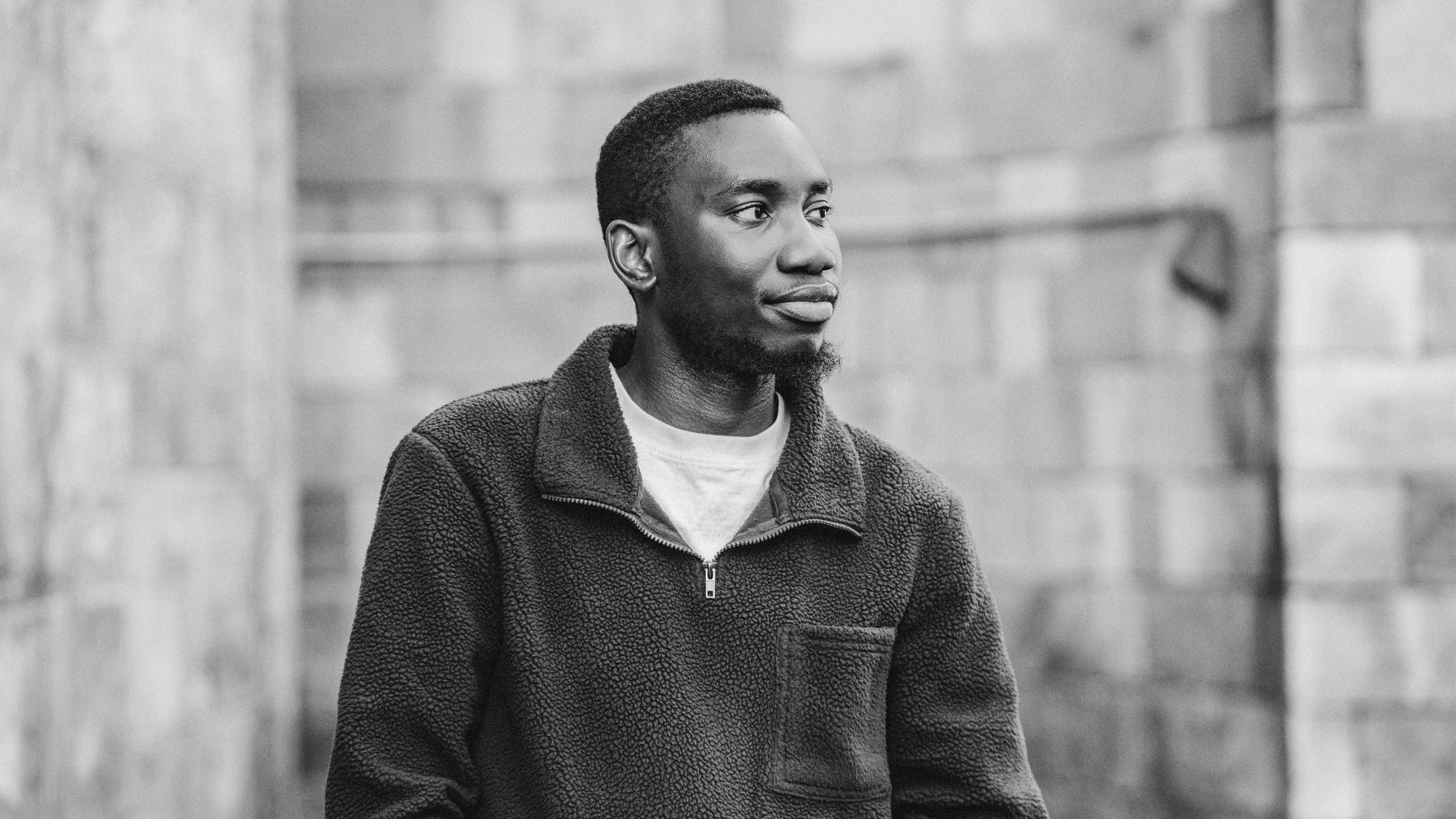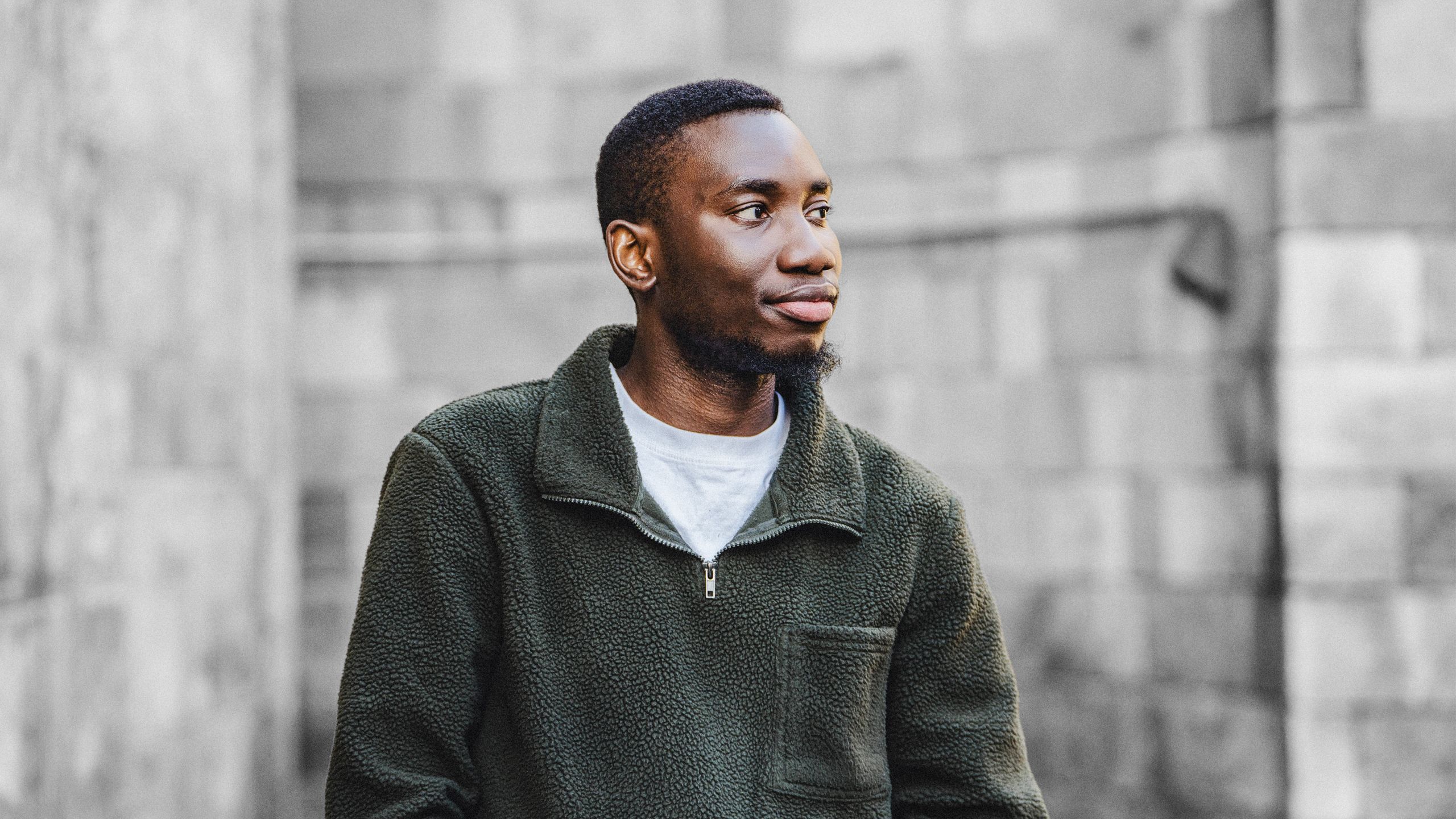Profile
Ifeanyi Obike: ‘It’s not been easy adjusting to a new culture’
Having trained in Nigeria, Diagnostic Radiographer Ifeanyi moved to the UK in search of new career opportunities. Here, he discusses his experience of the transition, and his aspirations for the future

Profile
Ifeanyi Obike: ‘It’s not been easy adjusting to a new culture’
Having trained in Nigeria, Diagnostic Radiographer Ifeanyi moved to the UK in search of new career opportunities. Here he discusses his experience of the transition, and his aspirations for the future

Having trained and worked in his home country of Nigeria for five years, Ifeanyi Obike found his wanderlust itching. Driven to advance in his career and seek out new opportunities, Ifeanyi took the leap and came to the UK in 2022. He is now a Diagnostic CT Radiographer working at the Northern Lincolnshire and Goole NHS Foundation Trust in Scunthorpe.
Since moving to the UK, Ifeanyi has not only worked as a CT radiographer, he also became a clinical liaison officer for students at his trust, as well as a union learning rep, been involved with the SoR’s Annual Delegates Conference and the Rep Forum, and experienced the diverse range of support and teaching the SoR has to offer. Most recently, he has handed off the role of union learning rep to a colleague, and taken on the role of industrial relations rep.
Now, Ifeanyi is looking forward to developing as a radiographer – not just in his career, but also as a member of the SoR.
‘I like adapting to new environments’
Throughout his time in Nigeria, Ifeanyi gained experience in many modalities but, on moving to the UK, he finally had the opportunity to specialise. “It’s amazing, because I have a strong interest in CT, and getting to specialise with my trust is great,” he says.
But Ifeanyi’s journey into radiography didn’t start with such a strong interest. In fact, his original career plan looked very different to the direction he ended up taking. “To be honest, I was going to go to medical school. I was going to be a doctor, but my uncle sat down with me and my mother and said ‘there’s this novel profession, radiography; it’s new, people are not really aware of it’, and then he told us all about it,” he explains.
“That peaked my interest, and I thought ‘why not give it a try?’ I don’t regret my decision in the slightest.”
Ifeanyi began his training as a radiographer in Nigeria in 2014, and completed his final year in November 2019. While working as an intern radiographer from March 2020 to February 2021, Ifeanyi worked on his postgraduate certificate in CT, receiving the award in October 2020. Ifeanyi then moved on to a private hospital in Nigeria, where we worked as a senior radiographer from April 2021 to April 2022.
During that period, Ifeanyi got first-hand experience of more than just being a senior radiographer. In August 2021, Ifeanyi’s head of department relocated to Ireland, and the department was left without a lead. Human resources and his other colleagues recommended Ifeanyi to the employer to take over the role, following his engagement with the Regulatory Authority’s visit to the hospital that same year. Ifeanyi ended up heading the radiography department’s administrative and clinical duties until April 2022.
It was only with this experience in hand that he made the decision to move to the UK. Before May was over, Ifeanyi was living in the country and working as a senior CT radiographer. “It came down to career advancement,” he explains. “There’s more opportunities here. I like to explore my creative mind and capabilities. I saw the UK as a good platform to explore that, so I relocated here.
“It wasn’t easy to start with, because I had to be away from family, and come here alone, to a new land, knowing nobody, and having to get to know the culture and blend in. But it’s been amazing, because I like adapting to new environments, so it’s been a relatively smooth transition.”
One of his priorities in coming to the UK is professional advancement – it has been a prime opportunity to explore the CPD on offer from the SoR, as well as the training programmes available through NHS England. Ifeanyi’s training in Nigeria was comprehensive, but he is always on the lookout for how he can keep growing. Synergy asked Ifeanyi about the professional transition. “In terms of the profession itself, talking about technical knowledge and practice, it’s similar,” he says. “I always tell my manager that I’m adding my skills to the trust. I have most of my experience and training from back home in Nigeria, because there aren’t that many senior colleagues to run to and ask questions, so you’re on your own studying, getting up to date with evidence-based practice.”
That being said, it has been a shift. But, Ifeanyi emphasises, that shouldn’t stop anyone from following in his footsteps and taking the leap to moving countries. “The only difference I would say is the manner of patient care – it’s just cultural differences, essentially,” he explains. “It’s not feasible to have expectations of it being exactly the same as back home, so I like to keep an open mind.
“At the end of the day, it’s a subjective decision. You explore what you want to do, and you move in that direction. In general, I would advise people to come here. There are more opportunities here. If you’re ambitious, you can find a platform where you can use that ambition. If you’re enthusiastic about the profession, you can exploit that.”
‘A shuttered occupation’
Discussing the profession inevitably means discussing the difficulties it is facing at the moment. Average vacancy rates in radiography departments have hit more than 13 per cent, with equipment sitting idle because of a lack of radiographers to use them.
With members of the SoR still waiting on a government workforce plan fit for the future, departments are having to turn to other methods to ensure the same standard of patient care is maintained. One way they might do so, Ifeanyi says, is with international recruitment: “We’re currently facing a shuttered occupation, and you have people on standby to fill in the gap. Inasmuch as we want to encourage indigenous training in the UK, that might not be as effective over time.
“It’s OK to look at other opportunities. You have internationally trained radiographers on standby and, when it comes to standards of practice, I can tell you that it’s of a high standard.”
Overcoming these difficulties isn’t something that’s going to be managed by one professional in one department but, until a workable and overarching plan is put into place, the important thing to focus on is professional development. “I haven’t worked in many trusts, but I think that’s why I picked the role of clinical liaison officer and union learning rep,” Ifeanyi continues. “I want to encourage people to get more into educational advancement. Sometimes, I can feel like a robot in my profession – come to work, do what’s been assigned, go home again. I’m not built that way. I want to understand why I am doing this; I want to understand the technique behind it, the science behind it.
“If I engage any other professional – a doctor, a nurse – if they ask me a question based on my profession, I should be able to give an in-depth, knowledgeable reply.”
In his first rep meeting, Ifeanyi suggested an internship programme for just-graduated students who are now working and getting paid – but are able to explore all modalities in one year of training. After that, they can decide where to specialise. That way, they have some knowledge of all modalities.
This approach is modelled on the one used by the profession in Nigeria – which Ifeanyi says helped him to work across X-Ray, CT, MRI, mammography, dental radiography, radiotherapy, brachytherapy, nuclear medicine and theatre. “I achieved all of this in the one-year internship programme I did after my studies in Nigeria,” he says. “In that one year, I was posted to each of those departments for one month or longer. You sit down, you see what you’re doing and you act as if you’re practising there, albeit under supervision. That gives you full knowledge of the entire profession, because it’s not just streamlined to X-ray and CT.
“I always implore my radiographers to engage the students that come to the department. You need to help them to understand why they’re here, and give them the opportunity to explore more.”

A part of the society
One way to ensure opportunities for educational advancement and professional development are seized, Ifeanyi says, is through the work of the Society of Radiographers. “When I joined my trust I was not in any union, and someone came to talk to me about the Society of Radiographers – and that is why I joined,” he explains. “By the time someone else came to talk to me about other unions, I was already part of the society!”
After joining the society, Ifeanyi attended the Annual Delegates Conference in 2023, where he was approached by Helen Wickham, regional officer for Yorkshire and North Trent and Northern Regions, and asked if he wanted to become a rep. “I thought ‘why not?’, because at that point I was already the clinical liaison officer for students, so I thought I would take up the challenge. It’s been a lovely opportunity, as has my time spent as a learning rep, and I’ve been able to explore a lot of my ideas personally.”
The opportunities on offer, Ifeanyi says, were unmatched. “The society has had a concrete impact on my day-to-day job, especially being part of the Rep Forum,” he continues. “There are a lot of exposures I’ve gotten, in terms of handling situations, being confident in the workplace and having a better understanding of scope of practice. I feel I have the upper hand compared to radiographers who are not part of the society, because of all of the experience.
“The Society of Radiographers stands for just radiographers – if a radiographer needs something, the society is in the best place to handle that situation. In terms of the opportunities it provides, the CPD on offer and the engagement with radiographers at large through ADC and the Reps’ Summit, it’s very unique. I would advise everyone to be part of the SoR.”
A part of the society
One way to ensure opportunities for educational advancement and professional development are seized, Ifeanyi says, is through the work of the Society of Radiographers. “When I joined my trust I was not in any union, and someone came to talk to me about the Society of Radiographers – and that is why I joined,” he explains. “By the time someone else came to talk to me about other unions, I was already part of the society!”
After joining the society, Ifeanyi attended the Annual Delegates Conference in 2023, where he was approached by Helen Wickham, regional officer for Yorkshire and North Trent and Northern Regions, and asked if he wanted to become a rep. “I thought ‘why not?’, because at that point I was already the clinical liaison officer for students, so I thought I would take up the challenge. It’s been a lovely opportunity, as has my time spent as a learning rep, and I’ve been able to explore a lot of my ideas personally.”
The opportunities on offer, Ifeanyi says, were unmatched. “The society has had a concrete impact on my day-to-day job, especially being part of the Rep Forum,” he continues. “There are a lot of exposures I’ve gotten, in terms of handling situations, being confident in the workplace and having a better understanding of scope of practice. I feel I have the upper hand compared to radiographers who are not part of the society, because of all of the experience.
“The Society of Radiographers stands for just radiographers – if a radiographer needs something, the society is in the best place to handle that situation. In terms of the opportunities it provides, the CPD on offer and the engagement with radiographers at large through ADC and the Reps’ Summit, it’s very unique. I would advise everyone to be part of the SoR.”

‘If you’re ambitious, you can find a platform where you can use that ambition’


‘If you’re ambitious, you can find a platform where you can use that ambition’

‘It’s all about prestige’
So what’s next for Ifeanyi? Having worked in the UK for just over three years, Ifeanyi has discovered a few important facts about himself – specifically, how much he wants to keep moving. “One thing about me is I don’t like sitting in one place,” he says. “I think that’s why I chose CT – MRI is beautiful, but it gets boring sometimes. My temperament is fight and flight; I want to be doing something at every point in time. I have considered medico-legal, I have considered lecturing, I have considered reporting – I believe I have so much potential, and that potential should be contributed to the society at large.”
Even with all of these possibilities, Ifeanyi can’t see himself leaving radiography behind. The profession, he believes, is one with so much potential.
But with all the difficulties facing the profession and the NHS as a whole, Ifeanyi does think things need to change. Synergy asked what he would look for in the future, and what he wants to see emphasised as part of the profession and as part of the society. “I had a one-on-one discussion with my regional head, Helen, and the topic was why the society was getting less registration. Certain themes came up, like publicity – the profession is not out there – and the other was the fee, how much we have to pay monthly to be part of the SoR, as opposed to other unions.
“My take was it’s all about prestige. In my opinion, the profession and the society is not meeting that prestigious standard – I feel like we are hidden in plain sight. How do we bridge that balance? I think it’s to bring the profession out there. It starts by working on yourself. If a doctor walks up to you and asks what you are doing, you should be able to demonstrate basic knowledge. I find many radiographers being complacent, laidback – no one is saying you shouldn’t work within your scope, but in terms of engagement, you should be able to match that standard.”
Ifeanyi’s feelings on the society match his attitude towards the profession itself, he adds. Not only should each and every one of its members focus on their own education, on their own professional development, but the society as a whole should look to advance in prestige and in standing. One cannot be disentangled from the other – and neither should be. “If I walk up to you as a rep, and tell you the society offers this, we stand for this, this is what we have achieved, these are our ambitions – I should be able to convince you to join the society,” Ifeanyi says. “And if you ask me how much, and I say £1,000, my conviction should be able to throw you off considering the amount.
“If I do not speak with confidence, and that prestige, and I come to you to join the society, then I will be unable to convince you. I need to put you in a situation where there is no alternative. That should reflect in my practice, and in my confidence speaking as a professional, as a representative of the Society of Radiographers.”
More about Ifeanyi Obike
Ifeanyi Obike is a Diagnostic CT Radiographer working at the Northern Lincolnshire and Goole NHS Foundation Trust in Scunthorpe, after travelling to the UK from his home country of Nigeria, where he trained.
Ifeanyi is a clinical liaison officer and an industrial relations rep at the SoR, where he has participated in the Annual Delegates Conference and the Rep Forum on multiple occasions, contributing to the profession and its development across events.


